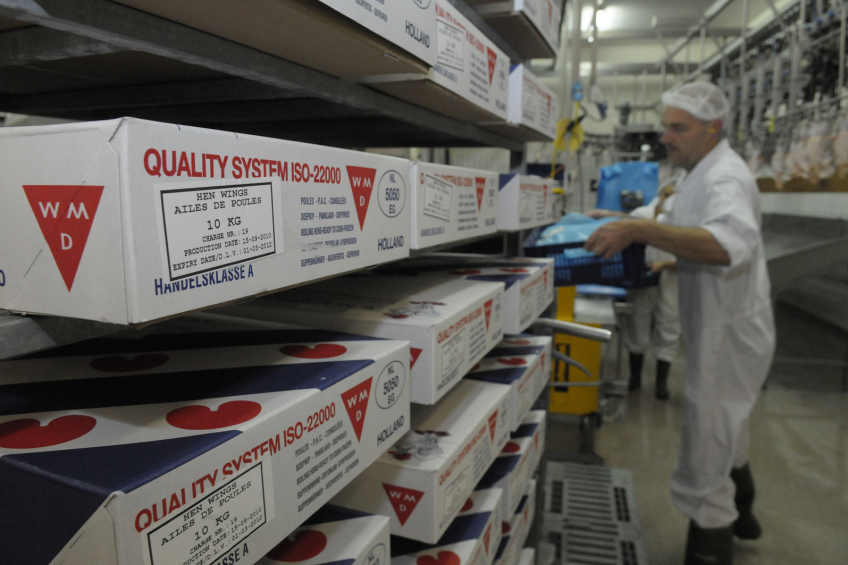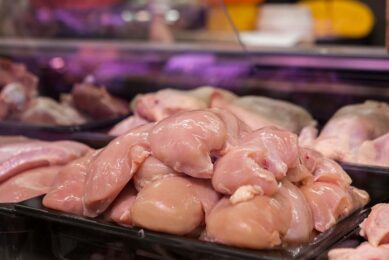Consolidation in meat industry continues

While Vion is being partially dismantled, the Chinese Shuanghui and the Brazilian JBS are making acquisitions. Large-scale ?production seems to be in swing again in the meat industry. About 10% of poultry processing is in the hands of the biggest players in the industry.
By Jan Cees Bron, Boerderij, Reed Business Media
For a long time meat companies were focused on increasing capacity. This strategy lost its shine over the last few years, because companies faced disappointing margins after a surge of takeovers. The acquired parties were often unsound and since virtually all major competitors grew considerably, competitive advantages and increased power in the market were not guaranteed.
The wave of takeovers led to a strong concentration of activities. According to Rabobank, 22% of the world beef market is in the hands of three of the largest producers, and in poultry 10% of production is realised by the biggest players. Pork production is relatively fragmented; only 7% is in the hands of the biggest players. In related industries, such as the egg sector and feed industry, there is less concentration of activities.
Two mega-acquisitions might indicate that large-scale production still has some believers: the acquisition of poultry company Seara by JBS and the acquisition of the US pork slaughter Smithfield by Shuanghui, also known as Shineway. These last two in combination produce 4.6 million tonnes of pork. The acquisition seems to be prompted by the desire to get Chinese food safety under control and to learn to produce efficiently. At the same time, Smithfield Foods will benefit from entering the market in Beijing. That is important, because this immense market is growing fast, as Rabobank states.
China has more large slaughter companies that are looking abroad, such as Yurun and Zhongpin. Yurun is partly owned by investment bank Goldman Sachs and Zhongpin entered into a strategic partnership with Vion last December. State banks often supply the money for Chinese takeovers. China reportedly has €3.4 billion in foreign reserves – three and a half times more than the Eurozone – and wants to use these reserves strategically, for instance for investments in mining, agriculture and sustainable energy.
Difference in cost structure
European meat companies like Vion are less attractive, because they often produce at higher costs than American companies. Rabobank-figures substantiate this. For instance, it costs nearly 30% more to produce poultry meat or eggs in the EU than it does in the United States. Furthermore, American and Brazilian meat producers are more often listed on the stock market and are at least partially vertically integrated, which gives more control over the total chain of production. This is exactly what the Chinese, being plagued by food scandals, want.
Experiences with making large acquisitions have not only been positive for the Brazilian meat giants JBS and Brasil Foods. JBS invested billions in acquisitions in the US (including Swift & Co and Pilgrim’s Pride), South America and Australia. Between 2005 and 2012 the revenues grew from almost €1.3 billion to €22 billion. In order to raise the necessary funds, the company listed on the stock exchange in 2007. Nevertheless, the high interest charges started to weigh down on the results of the company.
Rapid growth was not all it was cut out to be for Vion Food. The company grew, supported by Dutch farmers organisation ZLTO, as a result of joining forces within the Netherlands and making acquisitions in Germany and the United Kingdom resulted in a sales volume of €9.5 billion in 2011. Despite this volume, margins remained thin or even negative, and at present the British activities have already been sold again, while the profitable ingredients division is being detached from the slaughterhouses.
State aid
The fact that JBS is looking for acquisitions and that the relatively unknown Shuanghui can buy an American icon, is possible because of state interventions. Meat giants are classified as ‘national champions ‘ and thus get soft loans from state banks. In 2011, when rumours about acute distress at JBS emerged, the BNDES bank converted debts into shares. BNDES now owns 20% of JBS and as a shareholder asks for a long-term vision rather than aiming for a maximum of dividend in the short term.
Shuanghui received US$4 billion against mild conditions from Bank of China for the acquisition of Smithfield Foods, according to Chinese media. The bank owns more than 60% of an investment department of the Chinese State, at least 5% of the shares are put into a state pension fund. The remaining funding comes from the American investment bank Morgan Stanley.
JBS declares that acquisitions abroad are of strategic importance and therefore deserve state support. The reputation of the once underdeveloped Brazil is improving. JBS also refers to the takeover of the American ketchup giant HJ Heinz by the Brazilian private equity firm 3G Capital. Now Brazilian companies are the largest employers in the US. If Brazilian companies suffer from an expensive coin or limited availability of food, the risks are spread.
Wan Long, CEO of Shuanghui, expects more takeovers in agriculture, focused on delivery to China. In an interview with news agency Bloomberg he says to believe in common interests of Western and Eastern companies. That Shuanghui was “open to Western investments, including Goldman Sachs, proves that China does not only think of itself”, says Long.
JBS largest in meat
JBS is the largest producer of meat worldwide. The Brazilian company produces almost 4.8 million tons of beef per year. The number two, Cargill, follows with 3 million tons of sale. JBS, with a production of 1.1 million tons of pork, finds itself just below the top players in that industry. In comparison, Vion realized 2 million tons of production in 2011. Other than Vion, JBS is also large in poultry meat. The company bought the largest American poultry slaughter Pilgrim’s Pride in September of 2009 and reached a poultry meat production of 3.5 million tons annually. This makes JBS the number two in chicken, after Tyson Foods.
Join 31,000+ subscribers
Subscribe to our newsletter to stay updated about all the need-to-know content in the poultry sector, three times a week. Beheer
Beheer








 WP Admin
WP Admin  Bewerk bericht
Bewerk bericht